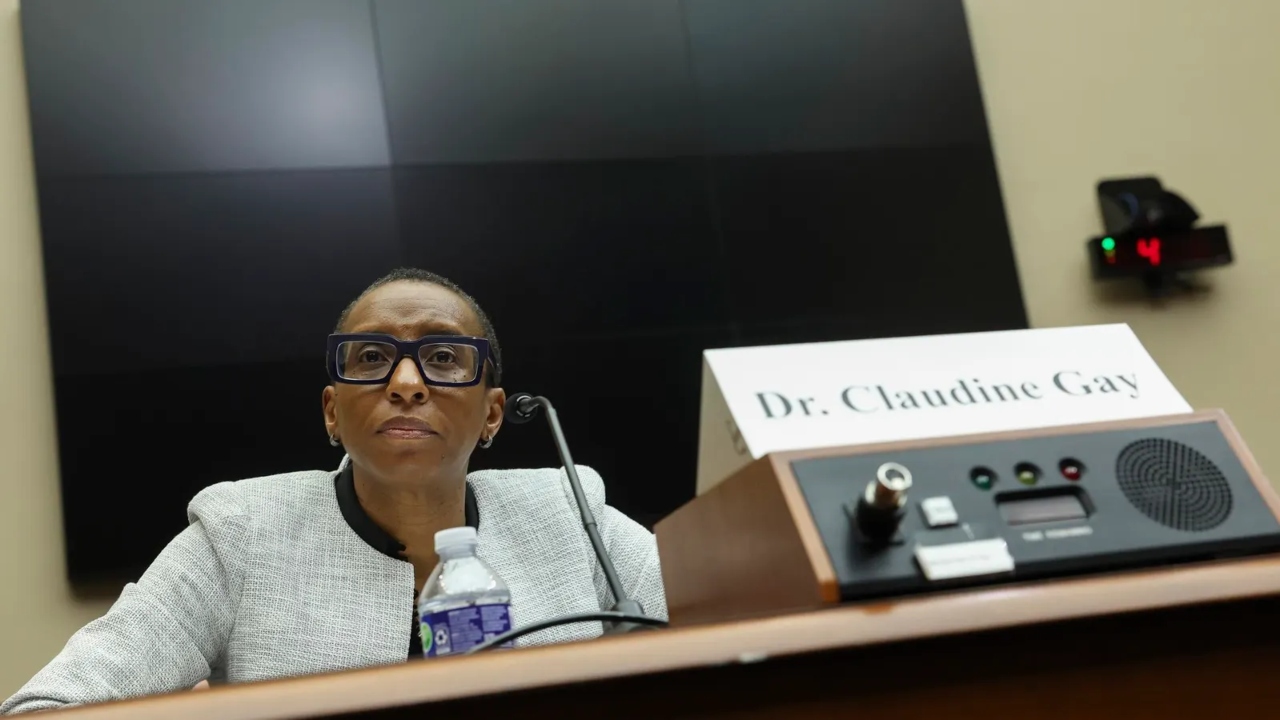The president of Harvard University, Claudine Gay, is under increasing scrutiny over her academic credentials after a data expert questioned the validity of the research that helped her secure tenure at Stanford University.
Gay, who became president in July, has faced criticism for her handling of the Hamas attacks on October 7. She was accused of being slow to denounce the students who defended the terrorist acts, and slow to condemn antisemitism on campus.
Her academic record has also come under fire, with allegations of plagiarism – and on Tuesday, a data analyst challenged her statistical methods. It was revealed that she had declined to share her data with other researchers, which is considered a breach of academic norms.
The data analyst, Jonatan Pallesen, who works for the Confederation of Danish Industry in Copenhagen, tweeted that he had reviewed her data use in her doctoral dissertation, and a 2001 paper published in the American Political Science Review (APSR).
The 2001 paper – ‘The Effect of Black Congressional Representation on Political Participation’ – was one of four peer-reviewed political science articles that helped her get tenure at Stanford in 2005. Gay had obtained a bachelor’s degree in economics from Stanford and a doctorate in government from Harvard, before going back to Stanford as a faculty member.
In 2006, she moved to Harvard as a professor of government and of African and African American studies. She was appointed as dean of Harvard’s Faculty of Arts and Sciences in 2018.
Pallesen found that the 2001 paper was flawed and incomplete.
“I am not a political scientist, but I am pondering about the whole approach of her study,” he said.
Christopher Brunet, a contributing editor at The American Conservative, followed up on Pallesen’s findings in The Dossier, and discovered that Gay had refused to share the data that supported her claims.
Gay’s behaviour was ‘shameful’
Two professors – Michael C. Herron, a quantitative social science professor at Dartmouth, and Kenneth W. Shotts, a professor of political economy at Stanford Graduate School of Business – had asked her for her data and code at a 2002 conference of The Society for Political Methodology, but she turned them down.
“We were, however, unable to scrutinize Gay’s results because she would not release her dataset to us (personal communication with Claudine Gay, 2002),” they wrote.
The professors said the statistical technique Gay used in her research often leads to ‘logical inconsistencies.’
But, Brunet reported, their critique of Gay was deleted from the website.
Brunet said that Gay’s refusal to share her data was “shameful”.
Herron, the professor who criticized her in 2002, told The New York Post that Gay was not the only person they examined when discussing data analysis.
On Tuesday, it was also reported that two Harvard board members and four faculty members had a private dinner where they allegedly talked about a culture of ‘self-censorship’ on campus, amid growing anger over the school’s reaction to the Israel-Hamas conflict.
The four professors who attended the dinner on Tuesday said they did not discuss the looming issue for the Ivy League institution – Gay’s precarious position as president – despite reports suggesting otherwise.
The professors were Jeannie Suk Gersen from Harvard Law School, Steven A. Pinker from Psychology, Flynn J. Cratty from History, and Jeffrey S. Flier, a former dean of Harvard Medical School. The board members were Tracy Palandjian and Paul J Finnegan.


